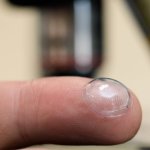
News • Microbial keratitis prevention
'Smart contact lenses' to detect eye infections
A pioneering ‘smart contact lens’ to test the eye in a quick, non-invasive way could prevent deaths caused by fungal eye infections in developing countries.

A pioneering ‘smart contact lens’ to test the eye in a quick, non-invasive way could prevent deaths caused by fungal eye infections in developing countries.
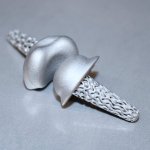
Researchers use AI to develop personalized 3D-printed joint implants so that these delicate finger parts can be replaced when necessary (e.g. after illness or injury).

The General Data Protection Regulation (GDPR), which came into force in 2018, has reinforced the European Union’s (EU) reputation of being comparatively strict regarding the protection of personal data within its member states. While the GDPR is generally considered a success, setting standards even outside its jurisdiction, critical voices are becoming louder.
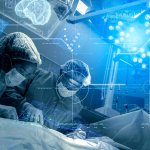
In surgery, artificial intelligence (AI) is applied mostly in imaging, navigation, and robotic intervention. However, AI can also play a major role in preoperative planning. Objective decisions-making, optimal utilisation of operating theatres and less overtime are additional advantages that are achieved with the use of AI in surgery.
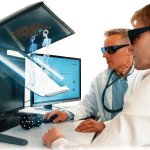
Volumetric 3D images and 3D models are becoming increasingly important in medical technology. Schneider Digital's high-resolution 3D PluraView stereo monitors are a perfect fit for 3D stereo display of medical data, especially from CT and MRI scanners.
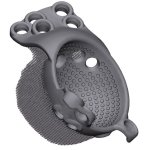
A custom-made new hip, a knee or maybe a piece of bone? The technology and possibilities for 3D printing are (almost) there. And such an implant from a 3D printer has many advantages, not only for the patient, but also for the surgeon who has to perform the operation. Koen Willemsen, physician, and medical engineer at the University Medical Center Utrecht (UMCU), was at the cradle of the 3D lab…

Innovative smart weighing scales are adding a new dimension to home monitoring for healthcare. By collecting data via sensors and proprietary technology as people stand on them, the scales can assess health metrics to give users more precise measurements for a deeper understanding of their body.
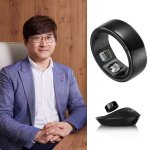
A smart-ring medical device is emerging as an effective and discreet wearable for round-the-clock blood pressure monitoring. Using photoplethysmography (PPG) signals to measure the bloodstream 24/7 through the wearer’s finger, a new feature of the “Cart-I plus” ring from manufacturer Sky Labs enables it to constantly monitor hypertension without user intervention.
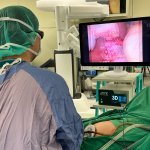
One of the world’s leading endoscopic imaging system companies, MedicalTek (MDTK) from Taiwan, launches its brand new endoscopic visualization system, Darwin MS-301. While keeping the main feature – conversion of 2D endoscopic images to 3D – from its predecessor MonoStereo, Darwin delivers the twice-better performance, more intuitive control, and Rigid and Flexible scope modes.
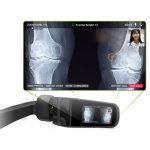
Eye4Care is a frontline healthcare staff support service, based on a proprietary platform, which enables real-time audio/video connection between healthcare specialists and the staff treating patients.
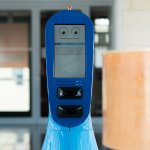
Innovative robot systems are being designed to help patients regain mobility and rehabilitate after undergoing surgery. In addition, robotics can be deployed to help older people stay active and fit so they retain their independence for longer.

Sepsis, a life-threatening, systemic, toxic bodily reaction to infection, is often difficult to detect in its early stages. Its symptoms, including fever, shortness of breath, rapid heart rate, and confusion, are associated with many medical conditions of hospitalized patients. But if not treated rapidly, a patient may die. The Targeted Real-time Early Warning System (TREWS) for sepsis detection…

The Red Cross is intended to protect aid workers from attack during their missions. Can this symbol also be used for the digital world – and what opportunities and risks are associated with it?

Increasing accessibility of remote and home monitoring for patients with pulmonary diseases can help improve treatment and rehabilitation adherence, and support health systems and hospitals in tackling waiting lists. The various advantages of remote monitoring systems will be highlighted in a Medica session focusing on “Preventing chronic diseases with diagnostics and analytics”.
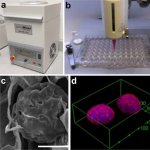
Bowel cancer patients could in future benefit from a new 3D bioprinting technology which would use their own cells to replicate the complex cellular environment of solid tumours in 3D models.
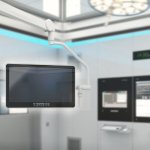
Nowadays, the operating theatre is networked and staff have access to a wide range of information and image data. With the Clinio, Rein Medical offers a medical all-in-one (AIO) computer that has been designed for use in hygienically sensitive areas.
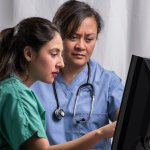
Clinician and nurse burnout is a frequently discussed topic in the healthcare community in the wake of the Covid-19 pandemic. According to an analysis of the NHS published earlier this year, more than 400 workers in England have left the NHS to restore work-life balance within this past year. Burnout and cases of post-traumatic stress disorder after working through the Covid-19 pandemic are major…
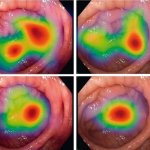
Artificial intelligence (AI) is increasing its foothold in endoscopy. Although the algorithms often detect pathologies faster than humans, their use also generates new problems. PD Dr Alexander Hann from the University Hospital Würzburg points out that the use of AI helpers can affect not only the reporting of findings – but also the person making the findings.
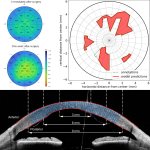
Many consider our eyes to be the windows to the soul. Yet the cornea, the panes of these windows, sometimes need significant repair. Friso Heslinga, PhD, created artificial intelligence models to support surgeons in one of the oldest and most common transplantation procedures.
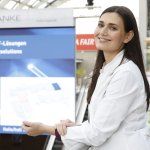
At this year's Medica (Nov 14-17), the Health IT Forum offers a special focus on how health IT can contribute to more sustainability in healthcare, and on optimising treatment workflows.
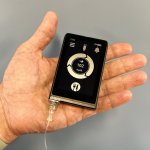
A device using next-gen technology to automatically deliver insulin was found to be more effective at maintaining blood glucose levels than standard-of-care management for type 1 diabetes.

Driving the healthcare industry towards digital transformation was the main direction of Automa+ 2022. The Congress gathered leaders from hospitals and healthcare providers, pharmaceutical companies, governmental bodies and institutions as well as medical device manufacturers, service providers and start-ups in Zurich, Switzerland on September, 26-27, 2022.

Patients looking for infos on implantable cardioverter defibrillators (ICDs) should not rely on YouTube videos, as quality content on the topic is few and far between, according to new research.
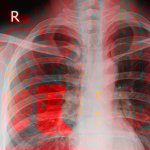
An international team of researchers advises that strong care needs to be taken not to misuse or overuse machine learning (ML) in healthcare research, despite all of its benefits.
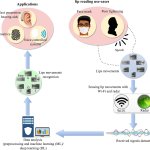
A new system capable of reading lips with remarkable accuracy even when speakers are wearing face masks could help create a new generation of hearing aids.